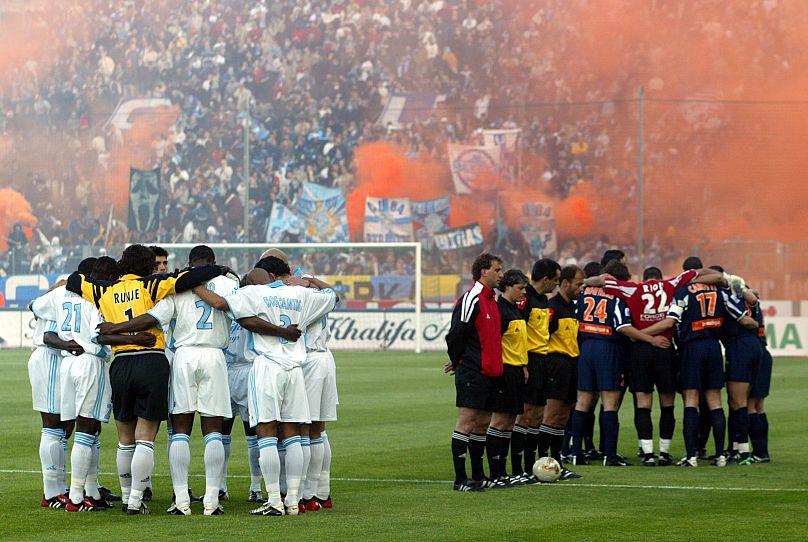On 5 May 1992, a stand collapsed at Bastia's Furiani stadium just before their French Cup semi-final against Olympique de Marseille, killing 18 people and injuring more than 2,300.
French MPs have backed a ban on professional football matches ever taking place in France on 5 May to honour the victims of a stadium disaster that rocked the island of Corsica 28 years ago.
 ADVERTISEMENT
ADVERTISEMENT
 ADVERTISEMENT
ADVERTISEMENT
On 5 May 1992, a stand collapsed at Bastia's Furiani stadium just before their French Cup semi-final against Olympique de Marseille, killing 18 people and injuring more than 2,300.
Organisations and activists representing the victims and their families have been calling for a ban on matches on the anniversary of the tragedy for more than 25 years.
The request was always met with opposition from the French league and the French Football Federation, as they were concerned about the scheduling of their competitions.
Over the years several parliamentarians criticised the reluctance of sports authorities on the subject, with the left-wing attacking the "greed" of the League and the Federation.
The vote
Led by Corsican deputy Michel Castellani, the bill was adopted at first reading in France's National Assembly on Thursday. It was supported almost unanimously by all political benches, with 85 votes in favour, one abstention and one vote against.
The latter came from Anne-Christine Lang, a member of President Emmanuel Macron's La Republique En Marche party, who commented it was not up to MPs to "legislate on emotion" and that commemorations are not part of the "legislative register".
The bill must now be examined and ratified by the Senate. If passed, it would provide for the sports code to be amended so that "no sporting match or event" of Ligue 1, Ligue 2, French Cup or Champions Trophy will be played on 5 May.
How was the outcome of the vote received?
Josépha Guidicelli, president of the “Collectif du 5 Mai”, a support group for the victims of the catastrophe, welcomed the Assembly's vote and defined its result as "an enormous satisfaction".
She told reporters that it was “unthinkable” for the families that France could allow football matches to be played on the day of “the biggest disaster in French sport".
It was "a national tragedy, one of the darkest pages in French sporting history", said Sports Minister Roxana Maracineanu, one of the 85 politicians supporting the draft law.
"Postponing matches does not seem insurmountable to me," said Maracineanu, while acknowledging that the organisation of sporting events is not a matter for the legislature but rather for the authorities, the federation and the professional football league.
"If we can move the matches when it is a Saturday, I don't see why it wouldn't be possible [to do so] on the other days of the week," she noted.
International competitions, such as the Champions League, the Europa League or national team matches, are not concerned by the vote, as they operate outside the scope of French authorities and parliamentarians.
Previous attempts to pay tribute to the victims
Shortly after the tragedy, then French President François Mitterrand had already suggested "that no match would be played on 5 May".
In July 2015, Thierry Braillard, the Secretary of State for Sport at the time, had put in place a freeze on matches played on Saturday 5 May only.
In addition to that, on other occasions, he organised several forms of tributes to the Furiani victims, including minutes of silence, black armbands worn by players or applauses.
What happened at Bastia’s Furiani stadium on 5 May 1992?
Castellani was at the Furiani stadium on that fateful day and told the Assembly how the tragedy unfolded.
Before kick-off, at around 8.20 pm, the politician said he heard a creaking noise that sounded like “a train passing” behind his back. The North Stand, a temporary structure "built-in haste" to increase the stadium's capacity, was shaking and causing the noise.
"I asked my son to come down and stay down. Many others weren't so lucky,” he stated.
In no time the upper part of the stand collapsed.











